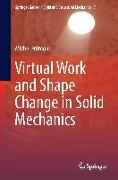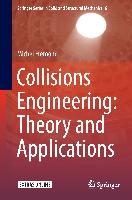- Start
- Virtual Work and Shape Change in Solid Mechanics
Virtual Work and Shape Change in Solid Mechanics
Angebote / Angebote:
This book provides novel insights into two basic subjects in solid mechanics: virtual work and shape change.When we move a solid, the work we expend in moving it is used to modify both its shape and its velocity. This observation leads to the Principle of Virtual Work. Virtual work depends linearly on virtual velocities, which are velocities we may think of. The virtual work of the internal forces accounts for the changes in shape. Engineering provides innumerable examples of shape changes, i.e., deformations, and of velocities of deformation.This book presents examples of usual and unusual shape changes, providing with the Principle of Virtual Work various and sometimes new equations of motion for smooth and non-smooth (i.e., with collisions) motions: systems of disks, systems of balls, classical and non-classical small deformation theories, systems involving volume and surface damage, systems with interactions at a distance (e.g., solids reinforced by fibers), systems involving porosity, beams with third gradient theory, collisions, and fracturing of solids. The final example of shape change focuses on the motion of solids with large deformations. The stretch matrix and the rotation matrix of the polar decomposition are chosen to describe the shape change. Observation shows that a third gradient theory is needed to sustain the usual external loads. The new equations of motion are complemented with constitutive laws. Assuming a viscoelastic behavior, a mathematically coherent new predictive theory of motion is derived. The results are extended to motion with smooth and non-smooth self-contact, collision with an obstacle, incompressibility, and plasticity. Extreme behaviors are sufficiently numerous to consider the parti pris that a material may flatten into a surface (e.g., flattening of a structure by a power hammer) or a curve (e.g., transformation of an ingot into a wire in an extruder). Flattening is an example of the importance of the spatial variation of the rotation matrix when investigating the motion of a solid.
Folgt in ca. 15 Arbeitstagen



